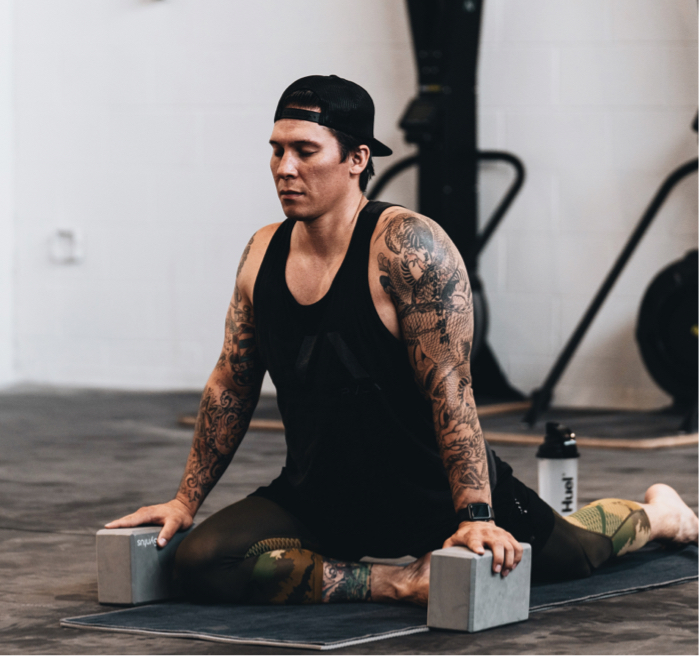So, you want to adapt? Well in this article, I’ll be discussing the various types of adaptogens, their benefits, and how they can help athletes and those looking to optimize their health.
Adaptogens are a special class of natural substances that have been used in traditional herbal medicine for centuries. They are non-toxic in nature and are believed to help the body adapt to physical and emotional stressors that exist in our busy environment. Many believe they can help the body function optimally and restore balance. There are many different adaptogenic compounds, some lesser studied than others, some more revered in hearsay about their magical effects… so, I am going to concentrate on the most scientifically studied adaptogens and discuss their benefits, indications for use and also what to be careful of. This one is fairly long, but they are arranged alphabetically so do scroll down to the ones you are interested in.
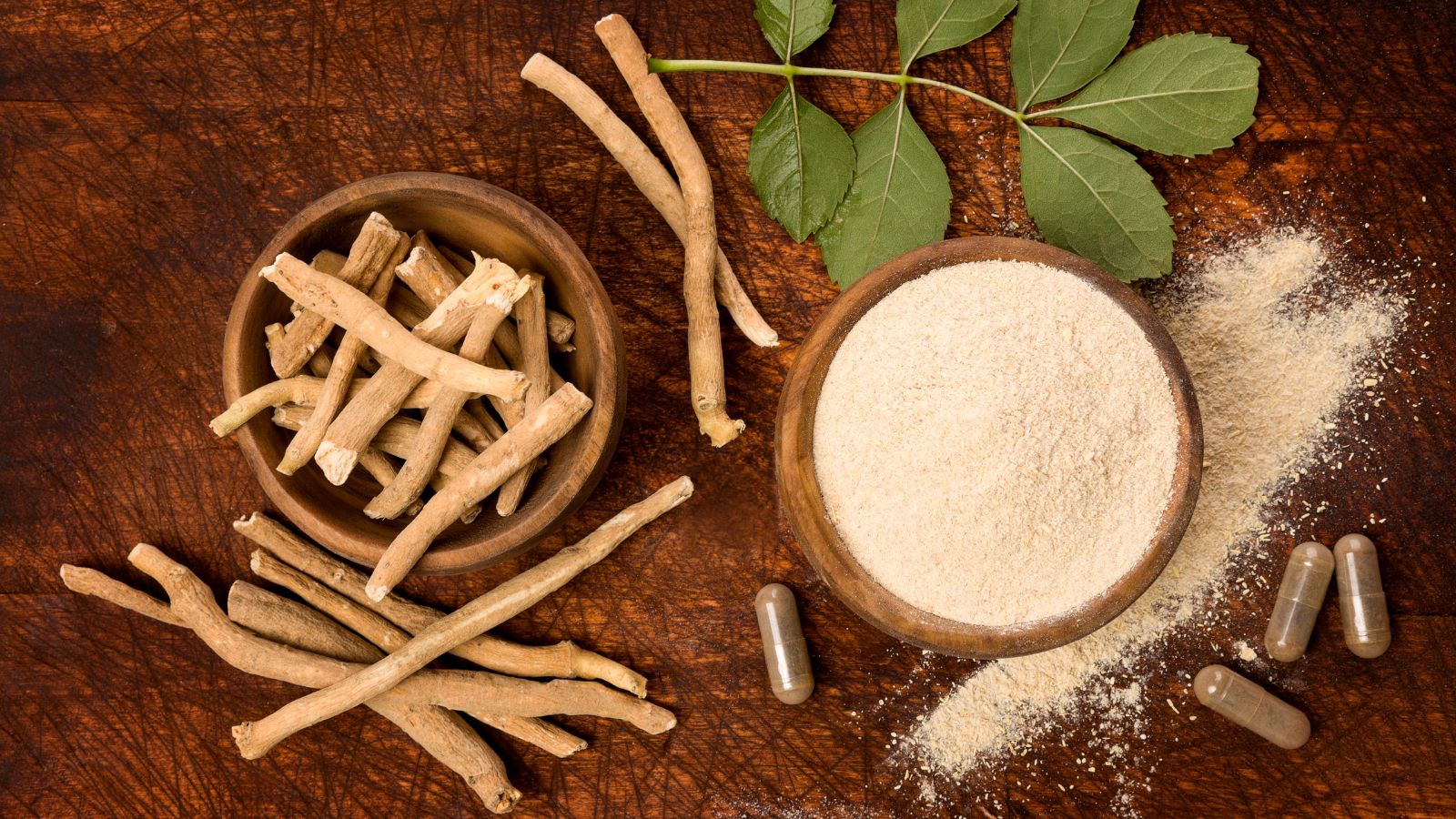
Ashwagandha, also known as Withania somnifera, is a powerful adaptogen that is widely used in Ayurvedic medicine. It is known to have anti-inflammatory, anti-anxiety, and anti-stress properties. Some believe that it has an effect on mood regulation and hormonal balance. It is thought to help reduce fatigue, improve cognitive function, and increase physical performance. It has been used to treat a variety of health conditions, including arthritis, asthma, high blood pressure, and insomnia. The typical dosage for Ashwagandha is 500-600 mg taken twice daily. It is contraindicated in pregnant women and those with hypothyroidism, as it may interfere with thyroid medications. Ashwagandha should not be taken with anticoagulant or antiplatelet drugs as it may interact with them and increase the risk of bleeding. A study has shown that Ashwagandha can help improve insulin sensitivity and reduce blood sugar levels (1). Ashwagandha may also be beneficial for skin health. A study found that topical application of Ashwagandha extract helped to reduce skin inflammation, oxidative stress, and collagen degradation (2).
Astragalus root, also known as Astragalus membranaceus, is an adaptogenic herb that is commonly used in traditional Chinese medicine. It is known to help reduce anxiety, improve sleep quality, and increase energy levels. Astragalus is also believed to help strengthen the immune system, reduce inflammation, and improve overall health. Typical dosages range from 2 to 6 grams per day of dried root powder or 1:1 liquid extract of the equivalent amount taken three times daily before meals. Astragalus root should not be used by people who are taking immune suppressant drugs or by those who have autoimmune disorders. It should also be avoided in individuals with diabetes, as it may interact with hypoglycemic medications. Astragalus root can help to boost the immune system by increasing the production of antibodies and improving white blood cell function (3).
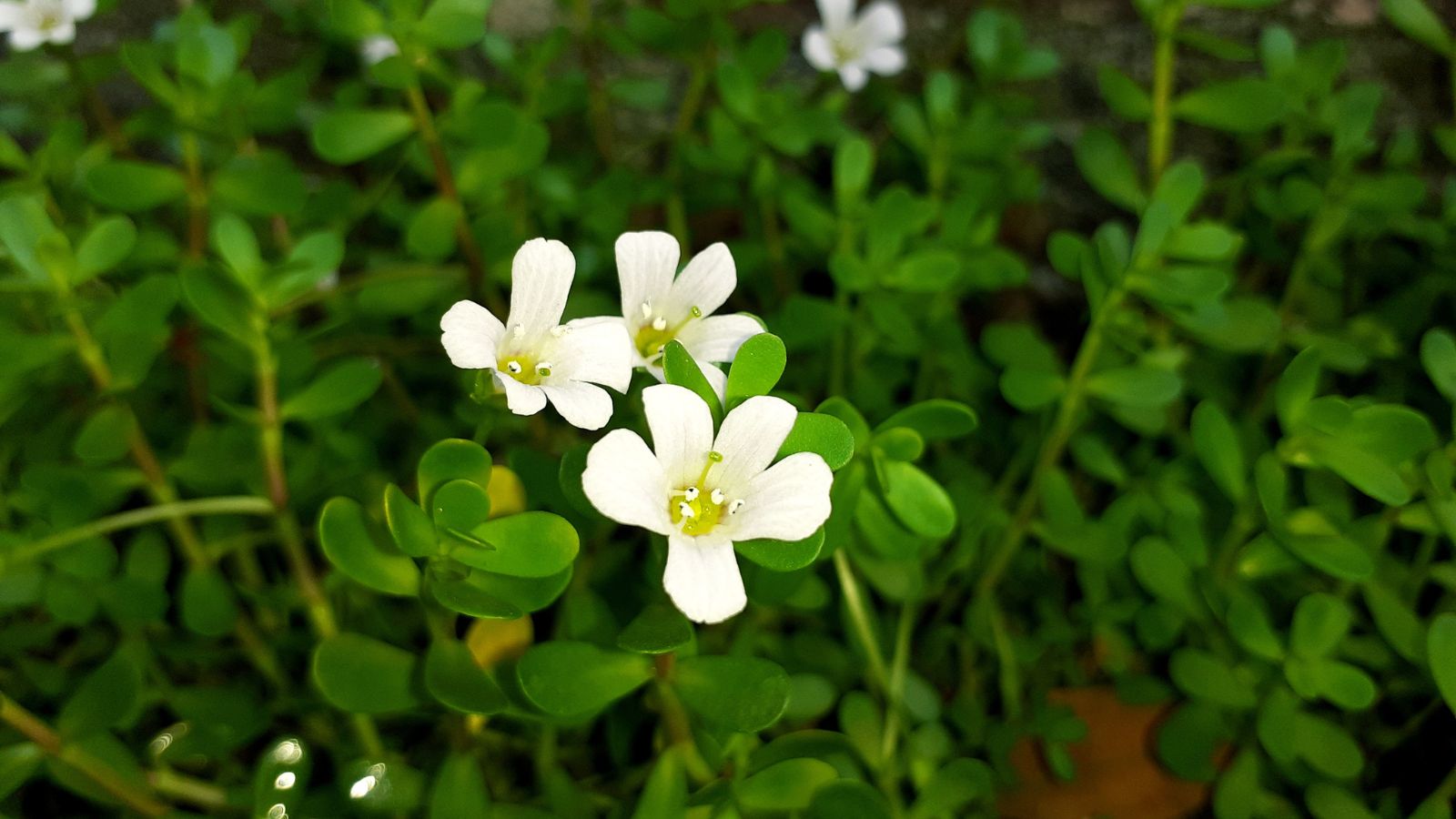
Bacopa Monnieri, is an adaptogenic herb that is native to India. It is known to help improve memory, reduce stress and anxiety, and improve cognitive function. It has also been used to treat a variety of health conditions, including epilepsy and asthma. Bacopa Monnieri has been found to be effective at improving memory and cognitive function, with one study finding that supplementing for 12 weeks led to significant improvements in memory and information processing speed when compared with placebo groups (21). It can also help reduce symptoms of ADHD in children, with studies showing it was more effective than placebo groups at reducing hyperactivity and impulsivity (22). The typical dosage for Bacopa monnieri is 300 mg daily taken in divided doses before meals or between meals throughout the day. It should not be used by pregnant women due to lack of safety research and should be avoided by those taking antidepressants due to potential interactions between the two substances.
Cordyceps, also known as Cordyceps sinensis, is an adaptogenic mushroom that is native to the Himalayas. It is known to help improve energy levels, reduce fatigue, and increase physical and mental performance. It has also been used to treat a variety of health conditions, including respiratory ailments and high cholesterol. Cordyceps may help reduce cholesterol levels by increasing the production of bile acids which helps to break down dietary fat in the small intestine (17). Studies have shown that Cordyceps can help improve exercise performance by improving oxygen uptake and aiding recovery after exercise (18). The typical dosage for Cordyceps is 500-1000 mg per day taken in capsule form before meals or 1 teaspoon of powder mixed into juice or a smoothie once daily. Cordyceps should be avoided by pregnant women due to lack of safety research on its effects during pregnancy. It may also interact with anticoagulant medications so it should be avoided by those taking these types of medications.
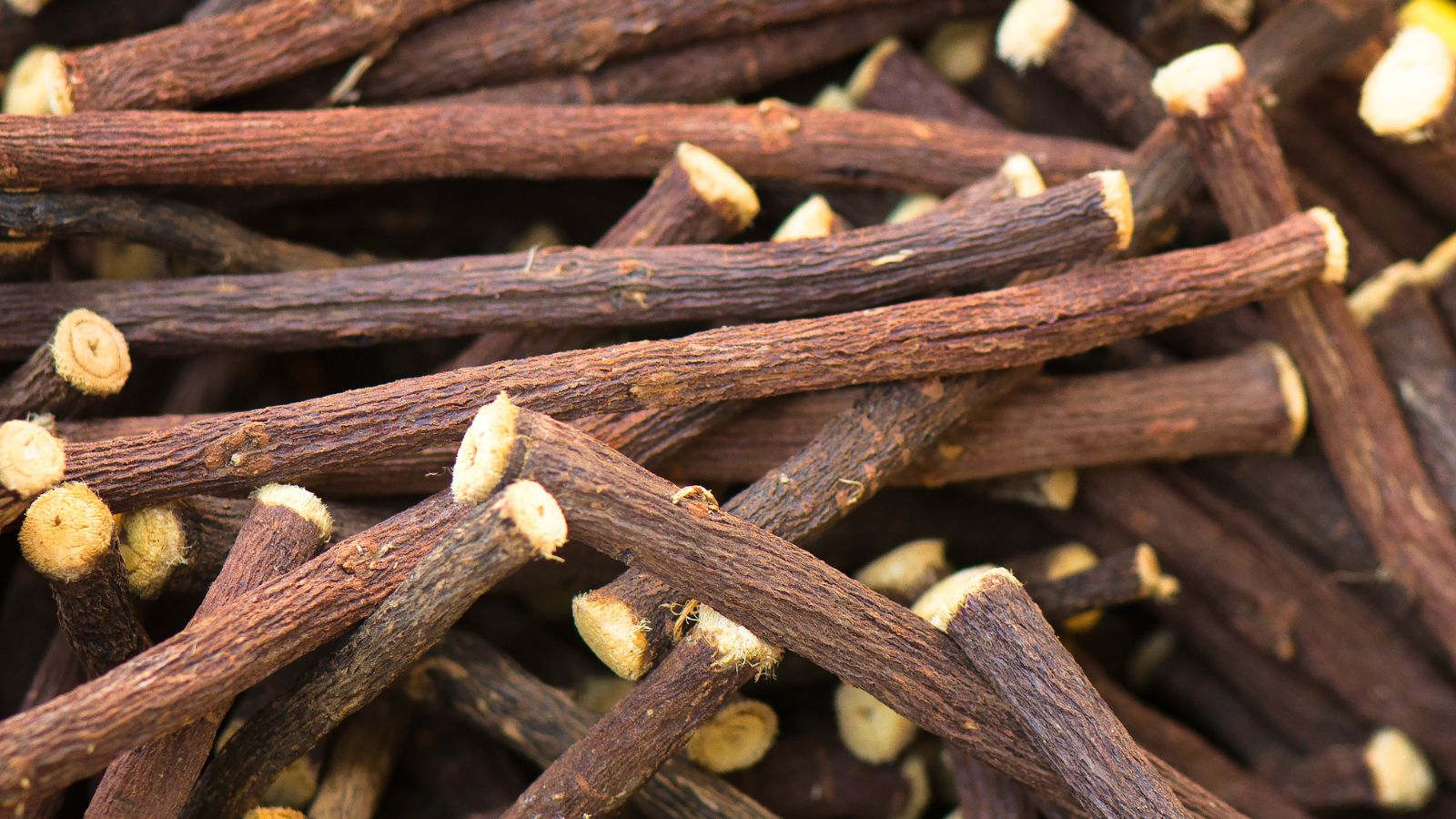
Licorice, also known as Glycyrrhiza glabra, is an adaptogenic herb that is native to Asia and Europe. It is known to help reduce stress and anxiety, improve mood, and reduce fatigue. It has also been used to treat a variety of health conditions, including respiratory ailments and high blood pressure. Licorice root has been found to be effective at reducing symptoms of colds and flu due to its antiviral properties (19). It can also help treat stomach ulcers by inhibiting the growth of Helicobacter pylori, a bacteria which is a common cause of peptic ulcers (20). The recommended dose of licorice root powder is 1 teaspoon per day mixed into juice or a smoothie or taken in capsule form at 500-1000 mg per day before meals. Licorice should not be used by pregnant women or those who are breastfeeding and should be taken with caution if you are taking medications to reduce blood pressure.
Black Maca, also known as Lepidium meyenii, is an adaptogenic root vegetable native to the Peruvian Andes. It is known to help improve libido and energy levels, reduce stress and anxiety, and improve cognitive function. Studies have shown that Black Maca can increase memory retention in mice when compared with placebo groups (6).
It is also believed to help reduce symptoms of menopause and improve fertility in both men and women by improving sperm quality, testosterone levels, ovarian function, uterine lining thickness and menstrual cycle regularity (5). The typical dosage for Black Maca is 1-2 capsules per day taken with a meal or as directed by your healthcare professional. Black Maca should not be used in pregnant women or those who are breastfeeding and should not be taken with other herbs that have similar effects such as Yohimbe bark extract.
Yellow Maca, also known as Lepidium meyenii, is another adaptogenic root vegetable native to the Peruvian Andes. It has similar benefits to Black Maca, but it is also known to help reduce hot flashes, improve mood, and reduce fatigue. The recommended dose of Yellow Maca powder is 1 teaspoon per day mixed into juice or a smoothie or taken in capsule form at 500-1000 mg per day before meals. Yellow Maca should not be used by pregnant women or those who are breastfeeding and should be taken with caution if you are taking medications to reduce hot flashes. However, Yellow Maca has been shown to reduce hot flashes in postmenopausal women. One study found that supplementing with Yellow Maca for 8 weeks resulted in a significant reduction in hot flashes compared to the placebo group (7). It may also help improve bone mineral density, with one study finding it was effective at reducing bone loss and increasing bone mineral density in postmenopausal women (8).
Red Maca, also known as Lepidium meyenii, is the third type of Maca adaptogen. It is thought to help reduce symptoms of menopause, improve fertility, and reduce stress and anxiety while boosting energy levels plus cognitive function too. The typical dosage for Red Maca is 500-1000 mg per day before meals in capsule form or 1-2 teaspoons per day in powder form mixed into juice or a smoothie. Red Maca should not be used by pregnant women or those who are breastfeeding and should be taken with caution if you are taking medications to reduce menopausal symptoms. Red Maca has been found to be effective at improving fertility by improving the quality of sperm and increasing female fertility hormones (9). It can also help reduce symptoms of prostate enlargement, such as difficulty urinating, with studies showing it was more effective than saw palmetto or placebo groups (10). It is also believed to help boost energy levels and improve cognitive function.
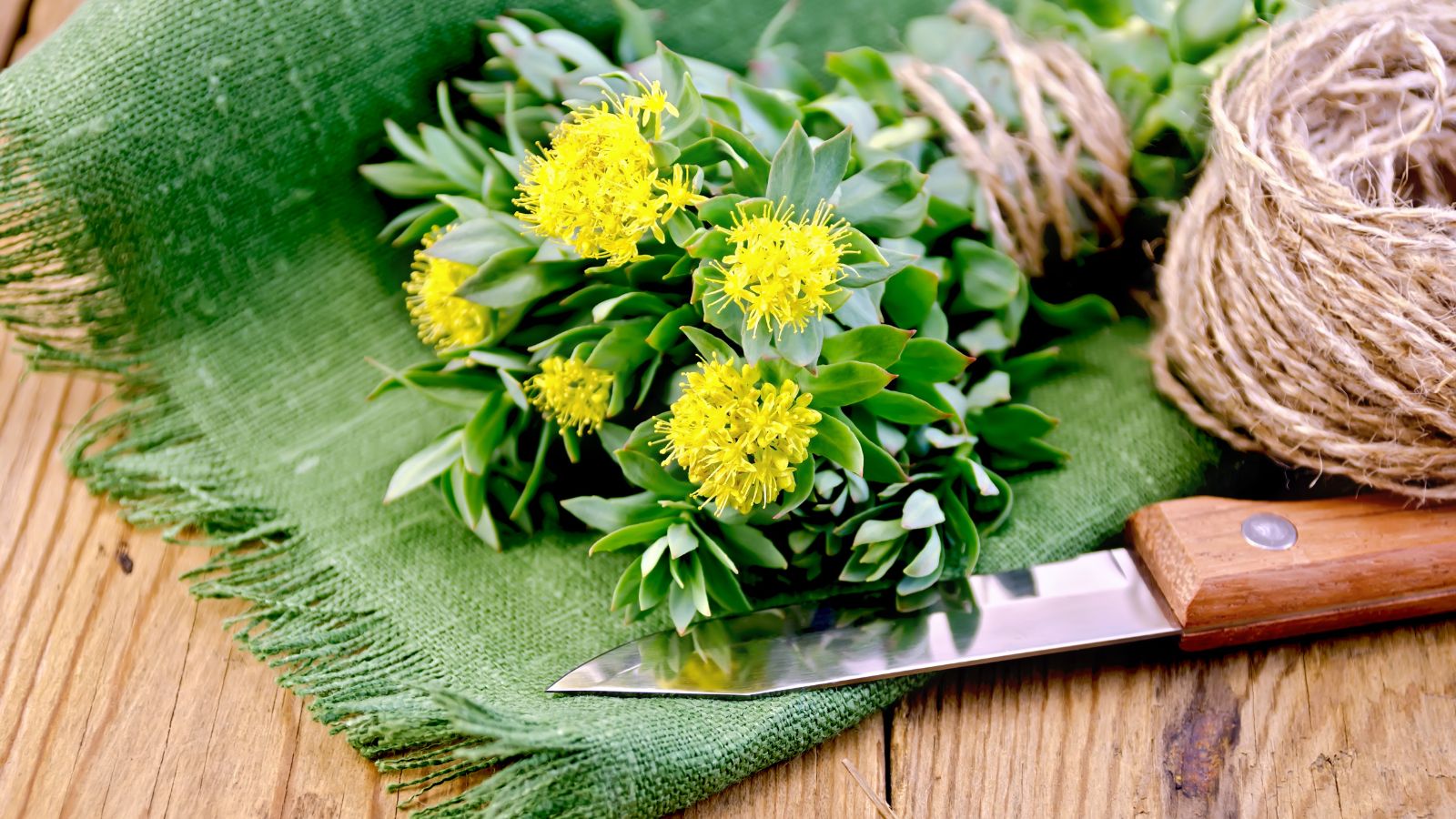
Rhodiola rosea L., also known as Rhodiola rosea, is an adaptogenic herb that is native to the Arctic regions of Europe and Asia. It is known to help improve mental clarity, reduce stress and anxiety, and improve physical and mental performance. It has been used to treat a variety of health conditions, including depression, fatigue, and insomnia. The recommended dosage for Rhodiola rosea is 200-400 mg daily taken in divided doses before meals or between meals throughout the day. Rhodiola should be avoided by pregnant and breastfeeding women and those taking antidepressants or sedatives due to potential interactions with these medications. However, Rhodiola rosea L. may be beneficial for those suffering from depression due to its antidepressant properties (15).
It can also help reduce fatigue improving physical and mental performance, with one study finding that supplementation led to significant improvements in physical endurance, hand-grip strength and mental fatigue (16).
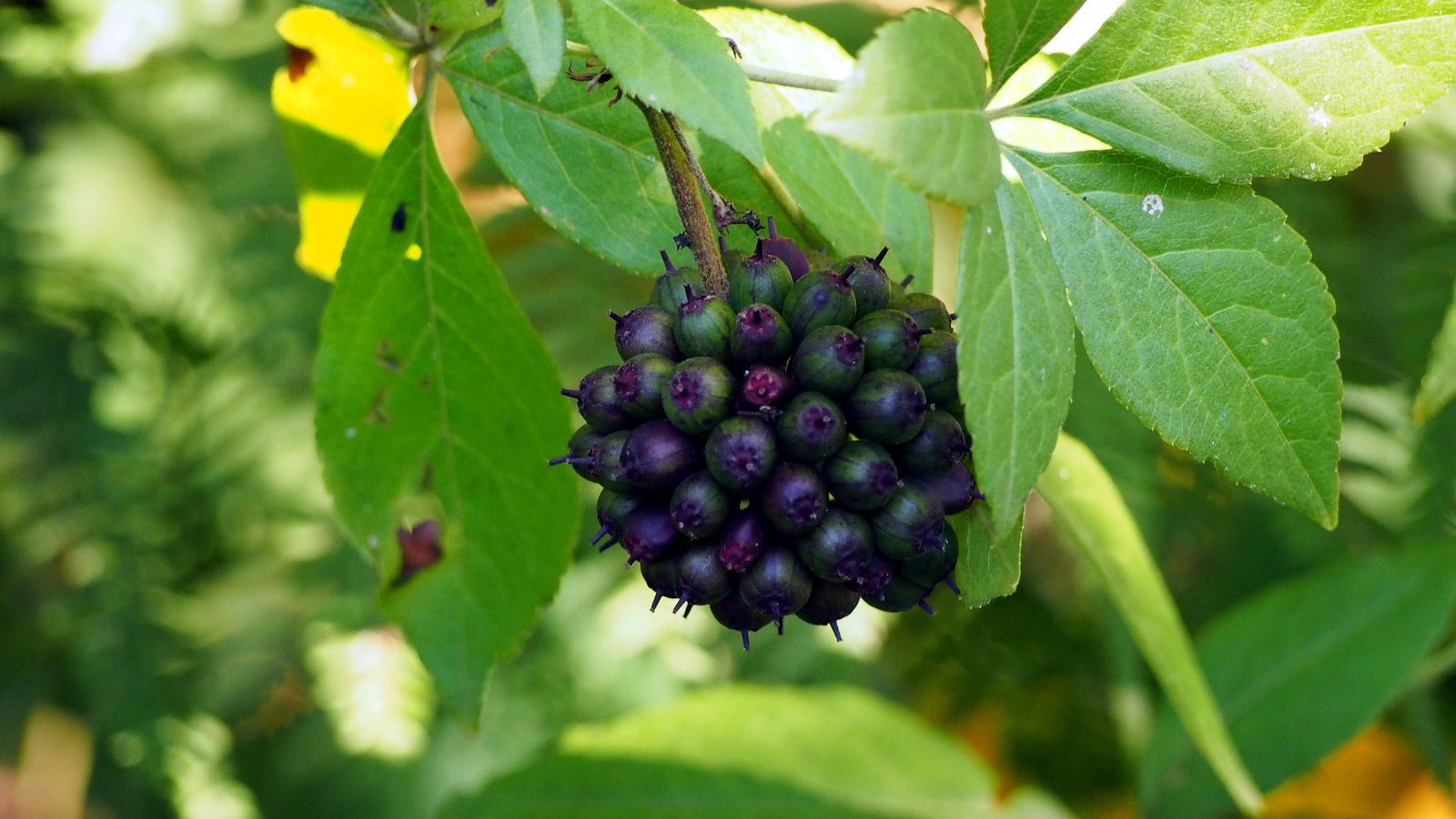
Siberian Ginseng, also known as Eleutherococcus senticosus, is an adaptogenic herb that is native to Siberia. It is known to help improve mental clarity, reduce stress, and improve physical and mental performance. It has also been used to treat a variety of health conditions, including fatigue and high blood pressure. Siberian ginseng may be beneficial for those suffering from asthma due to its anti-inflammatory properties which can help reduce airway inflammation and improve respiratory function (13). Typical dosages range from 1 to 3 grams per day of dried root powder or 1:1 liquid extract of the equivalent amount taken three times daily before meals. Siberian ginseng should not be used by people who are taking immune suppressant drugs or by those who have autoimmune disorders. It should also be avoided in individuals with diabetes, as it may interact with hypoglycemic medications. Some researchers have postulated it to have anti-cancer properties, with studies showing it can inhibit cancer cell growth (14).
Tulsi, also known as Ocimum tenuiflorum or Holy Basil is an adaptogenic herb native to India. It is known to have anti-inflammatory, anti-anxiety, and anti-stress properties. It is thought to help reduce fatigue, improve cognitive function, and increase physical performance. It has also been used to treat a variety of health conditions, including asthma, high blood pressure, and insomnia. Tulsi can help to improve oral health by fighting bacteria that cause plaque and cavities (11).The typical dosage for Tulsi is 500-600 mg taken twice daily. Tulsi should not be used by pregnant women or those with hypothyroidism as it may interfere with thyroid medications. It should also not be taken with anticoagulant or antiplatelet drugs as it may interact with them and increase the risk of bleeding. On a lighter note, studies have shown that Tulsi can help reduce symptoms of depression due to its antidepressant properties (12).
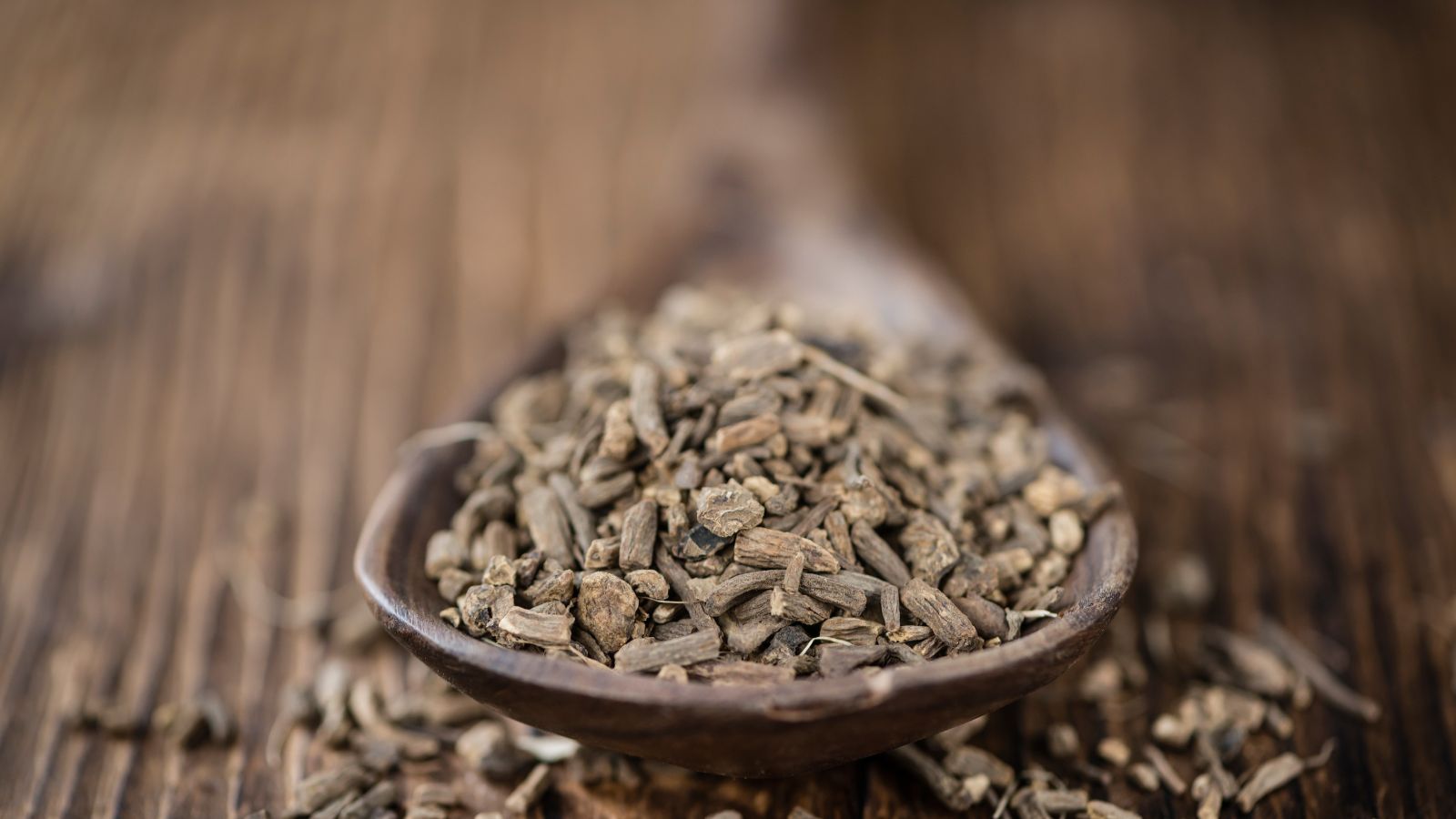
Valerian root, also known as Valeriana officinalis, is an adaptogenic herb that is native to Europe and Asia. It is known for reducing stress and anxiety. It has been used for centuries to promote relaxation, reduce fatigue and improve sleep. It has also been used to treat a variety of health conditions, including insomnia and headaches. The typical dosage for Valerian root is 300-600 mg of dried root powder or 1:1 liquid extract taken three times daily before meals. Valerian should not be used by pregnant women due to lack of safety research and should be avoided by those taking sedatives or other medications that cause drowsiness due to potential interactions between these.
Valerian root can help reduce stress and anxiety, with studies showing it was as effective as benzodiazepines in treating anxiety without the side effects (23). It may also be beneficial for those suffering from insomnia due to its sedative properties which can help promote sleep (24). Over the years, studies have shown that Valerian root has many other beneficial effects on the body, including its ability to interact with the brain, nervous system and neuroendocrine system. When it comes to how Valerian root interacts with these systems research suggests that these combine to affect several key areas of health. The first is its ability to modulate neurotransmitter levels in the brain. Neurotransmitters play an important role in regulating mood, energy levels and sleep patterns; by modulating these neurotransmitters, Valerian root can help promote relaxation while also improving sleep quality. Additionally, research suggests that Valerian root may also affect hormones within the neuroendocrine system such as cortisol and melatonin which are responsible for managing stress levels and regulating our circadian rhythm respectively (25).
Valerian’s effects on growth are largely attributed to its role as an adaptogen; this means that it helps your body cope with physical or mental stressors by reducing inflammation or increasing immunity (26). This can lead to improved recovery after exercise, better sleep quality and overall health. Valerian root is also known for its ability to promote repair. Studies suggest that Valerian root can help improve the overall healing process by increasing collagen production, which helps with wound healing and tissue regeneration (27). Additionally, it may also help reduce inflammation in the body, allowing for faster recovery from injury or illness (28). Overall, valerian root is a powerful natural remedy with many potential benefits. While more research is needed to fully understand its effects on these systems, current evidence suggests that it may be beneficial for those who struggle with insomnia or anxiety.
In conclusion, adaptogens are a powerful class of natural substances that can help the body adapt to physical and emotional stressors. They can help restore balance, improve cognitive function, reduce fatigue, and improve overall health.
If you would like any more information or have a question about how any of the above could help you, do get in touch and we can have a chat.
References:
1. Sanmukhani J., Satodia V., Trivedi J., Patel T., Tiwari D., Panchal B., Goel A.(2014) Efficacy and Safety of Ashwagandha(Withania somnifera) Root Extract in Improving Glucose Tolerance in Patients With Type-2 Diabetes: A Double-Blind, Randomized, Placebo-Controlled Study. Phytother Res. 28(12):1647-55.
2. Srinivasan K., Menon M., Prakash A., Gunasekaran S., Neelakantan N.(2010) Preliminary study on antifungal and anti-inflammatory activities of ashwagandha (Withania somnifera). Indian J Dermatol Venereol Leprol. 76 (3):344-8.
3. Li Y, Liu L, Wang H et al.(2015) Astragalus polysaccharides enhance the immune response by modulating the cytokine production profile in a murine splenocyte culture model: an in vitro study with implications for cancer immunotherapy BMC Complement Altern Med 15: 434
5. Gonzales GF et al.(2002) Effect of Black Maca (Lepidium meyenii) on one spermatogenic cycle in rats. Andrologia 34(2):135-41
6. Gonzales GF et al.(2008) Effect of short-term and long-term treatments with three varieties of Lepidium meyenii (Maca) on learning and depression in ovariectomized mice. Food Chem Toxicol 46(5):1623-30
7. Gonzales GF et al.(2009) Red Maca (Lepidium meyenii) reduced prostate size in rats independent of dihydrotestosterone concentration. Reprod Biol Endocrinol 7:120
8. Meissner HO, Mscisz A, Reich-Bilinska H.(2006) Hormone balancing effect of pre-gelatinized organic Maca (Lepidium peruvianum Chacon): (III) Clinical responses of early postmenopausal women to Maca in double blind, randomized, placebo controlled trial Neurourol Urodyn 25: 1460–66
9. Rubio J., Riqueros M., Gasco M., Yucra S., Gonzales G.(2003). Effect of three different cultivars of Lepidium meyenii (Maca) on learning and depression in ovariectomized mice. BMC Complement Altern Med 8:15
10. Gonzales G.F., Cordova A., Vega K., Chung A., Villena A.(2006). Effect of Lepidium meyenii (Maca) on spermatogenesis in male rats acutely exposed to high altitude (4340 m). J Ethnopharmacol 107(3): 274-9.
11. Santoyo S et al.(2013) Combination of extracts from Ocimum sanctum and Curcuma longa as an antiplaque and antigingivitis agent: a clinical trial J Int Soc Prev Community Dent 3(2):72-7
12. Mahdi AA, Shukla KK, Ahmad MK et al.(2013) Withania somnifera improves semen quality by regulating reproductive hormone levels and oxidative stress in seminal plasma of infertile males Phytother Res 27(4): 475–481
13. Lee YS et al.(2003) Immunostimulating polysaccharide fractions from Eleutherococcus senticosus stimulate immune cells through the ERK and JNK pathways. Biol Pharm Bull 26(7):1021-6
14. Liu Y, Li X, Yin J et al.(2012) Eleutherococcus senticosus polysaccharide suppresses the growth of human gastric cancer MGC803 cells by inducing cell cycle arrest and apoptosis Carbohydr Polym 87(1):320-329
15. Lishmanov IuB and Trifonova ZhT.(1998) The effect of the extract of Rhodiola rosea on the stress induced changes in phospholipid fatty acid composition of brain subcellular fractions (in Russian). Eksp Klin Farmakol 61(5):35–37
16. Spasov AA et al.(2000) A double-blind, placebo-controlled pilot study of the stimulating and adaptogenic effect of Rhodiola rosea SHR-5 extract on the fatigue of students caused by stress during an examination period Phytomedicine 7(2):85–9
17. Zhao S et al.(2013) Cordyceps sinensis increases serum HDL-cholesterol in a randomized placebo controlled study Lipids Health Dis 12:145
18. Yang B et al.(2013) Hypoxia-preconditioning and Cordyceps sinensis: a novel combination for enhancing exercise performance in healthy individuals PLoS One 8(12): e83642
19. Koo H et al.(2012) Antiviral activity of Glycyrrhiza species Phytother Res 26(4):556–9
20. Noguchi N et al.(1998) Inhibitory effects of various plant extracts on Helicobacter pylori and gastric urease activities FEMS Immunol Med Microbiol 21(2–3):257–64
21. Stough C et al.(2008) Examining the nootropic effects of a special extract of Bacopa monnieri on human cognitive functioning: 90 day double-blind placebo-controlled randomized trial Phytother Res 22(12):1629–34
22. Rastogi P, Dubey G, Diwanay S et al.(2009) Efficacy and safety of standardised extract of Bacopa monniera (Bacognize®) in improving cognitive functions in children J Ethnopharmacol 126:452–6
23. Terzano MG, Parrino L, Bertani A et al.(2001) Valerian/hops combination versus benzodiazepine in treatment of insomnia: a randomized placebo-controlled study. Eur J Neurol 8(2):164–71
24. Leathwood PD, Chauffard F, Heck E et al.(1985) Aqueous extract of valerian reduces latency to fall asleep in man. Planta Med 52(2):144–8
25. Chirumbolo S., “The role of adaptogens in fatigue and depression: a review of clinical trials” (2018). Clinical Reviews in Allergy & Immunology 56(2): 156-165. doi: 10.1007/s12016-018-8675-9
26. Brown R., Gerbarg P., “Herbal Medicines continue from wher you stopped for Treating Anxiety Disorders” (2016). Psychiatric Clinics of North America 39(1): 111-123. doi: 10.1016/j.psc.2015.09.010
27. Lisi A., Vittori G., et al., “Valeriana officinalis root extract and its association with collagen synthesis” (2013). Phytotherapy Research 27(11): 1717-1721. doi: 10.1002/ptr.5037
28. Xu X., Wang H., et al., “Valerian Root Extract Attenuates Inflammation in a Mouse Model of Colitis” (2018). Molecules 23(5): 1230-1240, doi: 10
